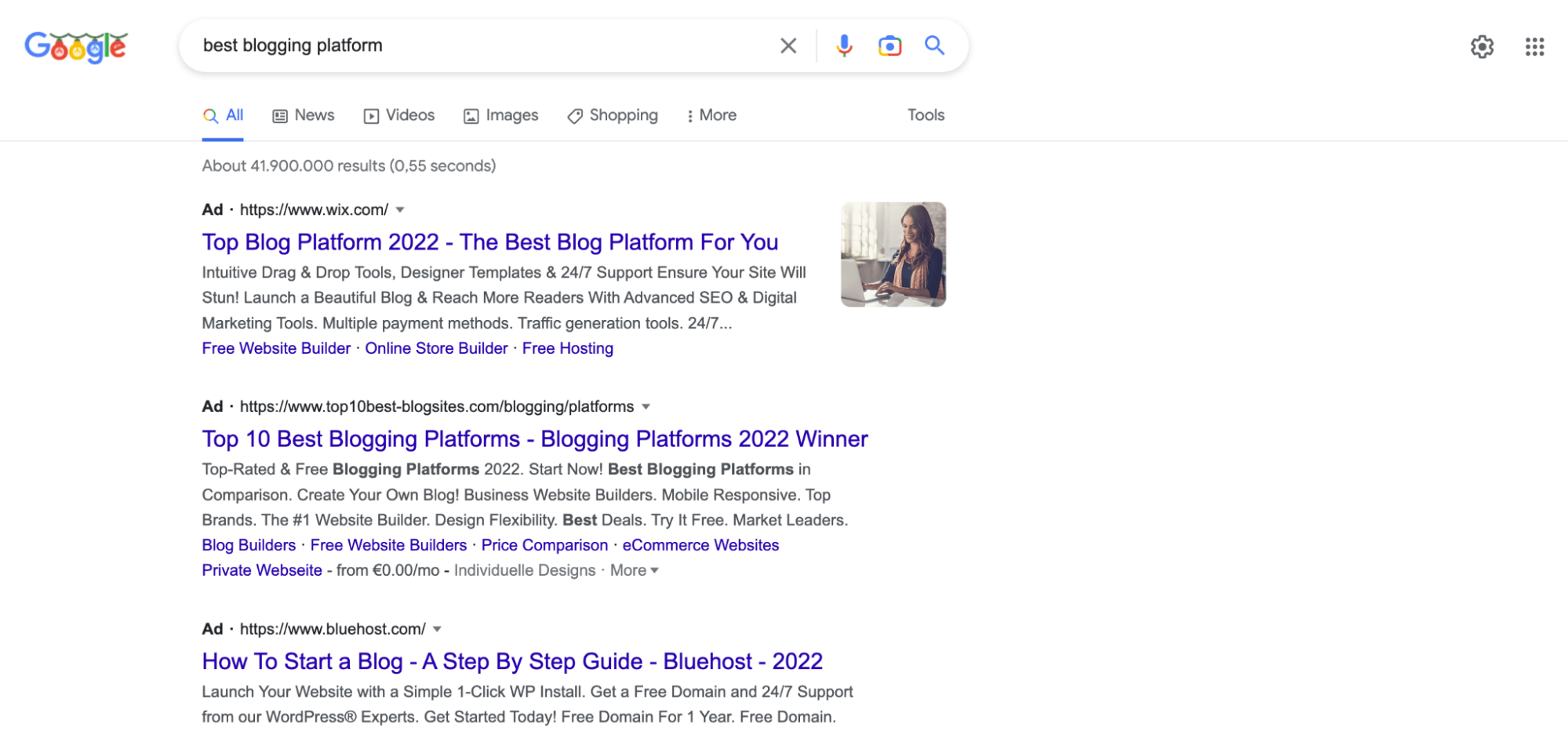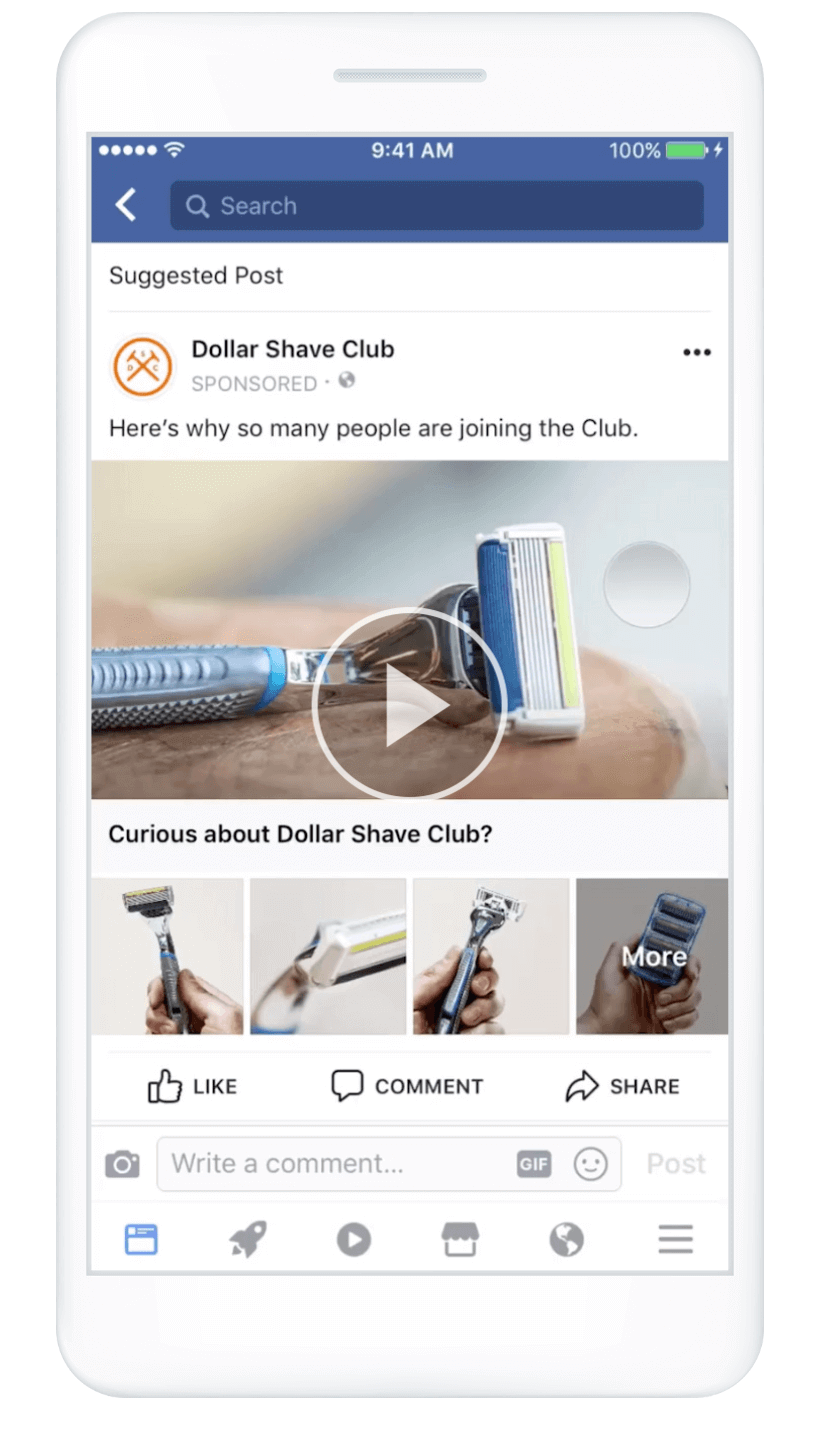What Are the Best Paid Traffic Sources for Affiliate Marketing?
Growing traffic is crucial to acquiring more leads and driving conversions. Paid traffic can be a good investment that allows you to achieve your goals faster. There are a number of paid traffic sources, such as pay-per-click ads in the search results, advertisements on social media, and so on. To target your ideal audience, you need to carefully consider the pros and cons of each source.
Let’s take a look at five of the best paid traffic sources for affiliate marketing campaigns.
Google Ads
Google Ads is an online advertising platform developed by Google that allows marketers to create ads and reach their target audiences at the exact time they are interested in the product. Potential reach includes billions of users searching for their answers on Google.com and other Google properties, such as YouTube, Google Maps, Google Play, etc.

Google Ads suits businesses of all sizes and operates on a pay-per-click model (PPC). This means that webmasters can target a particular keyword via Google search and bid on that keyword, while indicating the maximum amount they are willing to pay. With PPC ads, you will pay for clicks on ads that send visitors to your website.
Advantages of Google Ads
- Offers the widest reach on the Internet with Google and Google’s various properties
- Perfect for generating conversions and sales
- You can set your budget and limit spending
- You only pay for actual clicks
- Target your ideal customers with your most important keyword at the exact time they are searching for that keyword and are potentially ready to make a purchase
Disadvantages of Google Ads
- There can be a lot of competition, depending on the niche and topic
- On offers text-based ads, so there are no visuals to convey your brand image to audiences
Display Ads
Display ads are shown on third-party websites in the form of a banner, image, or video. With the help of cookies, they are tailored for a particular user depending on their demographics, online behavior, etc. Display ads charge webmasters either per click (PPC) or per thousand impressions (CPM). Google offers a wide network of websites and blogs on which to place your ads.
In the screenshot below, you can see an example of a travel blog with three display ads, which are being shown according to the geolocation of the visitor.

Advantages of Display Ads
- High reach of target audiences
- Topic and interest targeting and remarketing opportunities
- Can greatly boost your brand recognition or allow you to introduce a new product
- You can use eye-catching images and videos to capture the audience’s attention
Disadvantages of Display Ads
- Pushing your offer to users when they may not be considering making a purchase
- Lower click-through-rates and conversions than search ads (on average)
- High impressions do not always guarantee high sales
- Many users have ad blocking software
Social Media Ads
Social media marketing has undeniable advantages and allows you to reach your target audience when they are engaging with content from their friends, families, or other brands and are perceptive to new information. More and more people use social media to explore the market and discover new products and services, so it can be a great chance to introduce your brand.
Every social network, including Facebook, Instagram, Twitter, LinkedIn, etc., has its own advertising opportunities and terms of use. For example, Instagram offers marketers the option to choose between in-feed ads, video ads, carousel ads, or ads in Stories. Sometimes, you can add a CTA button to encourage clicks.
Launching a campaign is quite easy: choose your objective, select your audience, budget and ad format, and place your order.

Advantages of Social Media Ads
- Wide reach due to the growing popularity of social media worldwide
- Social media ads are perfect for raising brand awareness
- A wide array of ad formats is available, including text, images, videos, etc.
- It is possible to advertise across different platforms (for example, on Facebook and Instagram)
- Strong built-in analytics tools
Disadvantages of Social Media Ads
- Can be costly
- Allows for negative customer feedback
- Rather low return on investment in comparison to other types of ads
Video Ads
Videos are one of the most engaging forms of content for capturing users’ attention with dynamics, appealing visuals, and relevant audio or songs. More and more brands prefer to run video advertisement campaigns to encourage users to check out their offers.
You can run video ads on a variety of platforms, including YouTube, TikTok, and other social networks as well as third-party websites.
Advantages of Video Ads
- Video is the most captivating form of advertisement
- Provides ample opportunities to present the advantages of your product or service
- Lower competition in comparison with text and image ads
- Videos feature high return on investment
Disadvantages of Video Ads
- Creation of video ads is more expensive and time consuming
- Users with technical issues, such as a slow internet connection, are unlikely to watch your ad
- Short attention span of audiences
Mobile Advertising
Mobile advertising includes all ads that appear on smartphones and tablet devices. Mobile accounts for over half of total global web traffic, so running mobile advertisements is often a reasonable way to achieve one’s marketing goals. The key to success is to optimize your ads for mobile screens so users have no viewing issues.

Advantages of Mobile Advertising
- Mobile advertising is often cheaper, but the return on investment can be high
- Mobile is one of the fastest-growing traffic sources
- Various ad types available
Disadvantages of Mobile Advertising
- Your ads should be optimized for mobile screens
- Mobile ads allow for less overall information
- Optimization can be an issue considering numerous shapes, sizes, and operating systems of mobile devices
Conclusion
While organic traffic is an important means of growing your online presence, there are faster ways to drive traffic, such as paid advertising, which also allows you to target your offer toward your ideal customer. The best paid traffic sources for affiliate marketing include Google Ads, social media ads, mobile advertising, video ads, and more, which offer different ad formats, reach opportunities, and analytics features. A successful advertising campaign always consider one’s marketing objectives, desired budget, target audience, and the online behavior of said audience.




